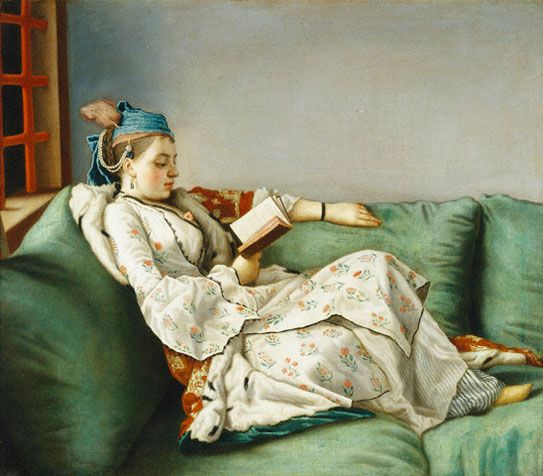 |
| Courtesy: Allen & Unwin |
A cosy group talked through their views on Louis Nowra's Into that Forest. It tells the story of two young girls, Hannah and Becky, who are taken in by a Tasmanian Tiger couple when they find themselves lost in the bush after their boat capsizes and the adults with them, Hannah's parents, die.
We had different views on 'getting into the book': some found it compelling storytelling and were absorbed and others found it hard to return to the book. Some found the language a distraction. Another key detractor was credibility. For example, some thought the story itself unbelievable, or that the girls' responses seemed far fetched, or even that there were inexplicable inconsistencies (such as the sophistication of Hannah's thinking and memory, yet her language seemed so affected by her experience).
In terms of literary style, we noted the similarities between earlier work we have reviewed (Keri Hulme's The bone people) and it was suggested that this book could fit into the category of Young Adult fiction. It was also suggested that this is a highly visual novel, and that it could easily be crafted as a play.
We also discussed some of the behaviours exhibited by the characters and why they responded to the events. Becky's behavior seemed inconsistent, for example, and this was put down to the fact that her father was alive, and that she therefore had a reason to want to adjust to her human world. Hannah on the other hand knew her parents were dead, and we considered the possibility that her sense of being and emotional security was found through her connections with her thylacine family. It was also noted that there would not have been any counseling for PTSD at the time of the story, and the difficulty Hannah and Becky must have experienced in overcoming trauma and finding a sense of self back in human society.
One of the themes we discussed was the animalistic behaviour portrayed by the girls, such as the adrenalin rush that came from the pack hunt, the kill and the fresh blood. Parallels were drawn between this great sense of fulfillment and the thrill that must come from well planned crime or other adrenalin filled adventures. The lure of the hunt (or crime) appears compelling in contrast to our mundane and unadventurous lives. We also wondered whether the author was commenting on the bravery and fearlessness of children, and their capacity to adapt in life threatening circumstances.
We complimented the author on his description of the bush. Some commented that they could smell and feel the bush, the descriptions were so vivid. The author really immersed the reader in the thylacine's world - we got to know them to some extent, and several of us felt a good deal of empathy for the animals (especially Corinna towards the end).
We were puzzled about the rationale for the book. Why did the author write this story? Why did he focus on thylacines and that era? Was it because modern children are so spoilt, privileged and unchallenged? We thought it would be good to research these issues and bring back some 'answers' at a future meeting.
Overall, most attending thought it was an absorbing tale and a compelling piece of story telling. We all agreed that the story line and concepts were thought provoking.

